CONNECTED SPEECH AND RELAXED PRONUNCIATION
Transcript
English Transcript
Notice the difference between the following. Stop it. Stop it. And, stop it. Stop it. Now the latter is an example of connected speech, and this is when two or more words come together to sound like one word, and we use connected speech all the time in English.
This, again, helps us speak more efficiently, and it happens when consonant and vowel sounds, or sometimes two consonants, come together as one word. Here are some more examples.
These examples show how consonant and vowel sounds come together. I need it. I need it. So you’ll notice it just sounds like one word here. Instead of saying I need it, I need it. I need it. The second one have a go. Have a go. Have a go. And the last one, not at all. Not at all. Not at all. These are examples of when consonants come together. For example, I had the best time. So we have best time, best time. Best time. Best time. Have a good day. Have a good day. Good day. Have a good day. He has a black car.
So you’ll notice the first one is the consonant and vowel coming together, has a, he has a, black car, black car. So again, the two consonant sounds, the k- sounds, come together. He has a black car. English speakers also use relaxed pronunciation, and this is where syllables come together. It’s kind of like a lazy way of speaking, but it’s so common in everyday spoken English.
Now, the examples I’m going to give you in this lesson are very common examples. You’ll also hear some slang examples in real life too. When it comes to using relaxed pronunciation, use it if you feel confident about using it, and also know that it can be informal. So if you’re in a meeting maybe don’t use it, but know that in everyday English it is really common. Here’s the first example. Want to becomes wanna. Wanna. I want to go, I wanna go. I wanna go. And you’ll notice how this connects together too. I wanna go. I wanna go, wanna go. It’s like one word. Going to becomes gonna. I’m gonna go. I’m gonna go. I’m gonna go. Have to becomes hafta. I hafta go. Hafta. Hafta. I hafta go. I hafta go. You’ll notice the shwa sound. I hafta go. I hafta go. A lot of becomes a lotta, and you’ll hear in American English a lotta. A lotta. A lotta in British English. There are a lotta people here. There are a lotta people here. A lotta. Kind of becomes kinda. Kinda. I kinda like it. I kinda like it.
Once again, practice as much as possible. This part especially is really going to help your fluency. These connected words and relaxed pronunciation, they’re just so common in everyday English. So practice this, and when it comes to the fluency phrases, look for it as well. So you’ll notice when I use this relaxed pronunciation and more commonly the connected speech.
In English, we often connect words and syllables together.
For example, stop it sounds like stopit (one word).
We also say things like: wanna (instead of want to).
Like I mentioned in the video, relaxed pronunciation can be informal. Only use it if you feel confident enough.
TIME TO PRACTICE…
- Listen to the following phrases
- Pause after each one
- Repeat the phrase
(Note: as a member, you will get feedback on this. You’ll be able to send me an audio file of you repeating these phrases.)
Connected Speech
I need it.
I wanted it.
Print it.
I passed it to you.
Stop it.
A good day.
Not at all.
I love fry ups.
Relaxed Pronunciation
I wanna go (I want to go)
I’m gonna go.= (I’m going to go)
I kinda wanna go (I kind of want to go)
I’m gonna wanna go soon (I’m going to want to go soon)
Doncha? (Don’t you?)
I hafta do it (I have to do it)
There are a lotta people here (There are a lot of people here)
You shoulda done it (You should have done it)
Didja? (Did you?)
Gimme some time (give me some time)
I dunno (I don’t know)
Whatcha thinking? (What are you thinking?)
Lemme think (let me think)
I’m trynna do it (I’m trying do it)
JOIN NOW TO DOWNLOAD THE PHRASES AND TO GET FEEDBACK ON YOUR SPEAKING
Privacy Policy | Disclaimer | Terms | Contact | Refund Policy
© JDA Industries INC. 2017